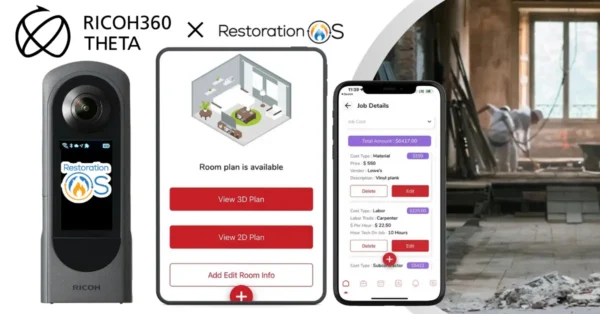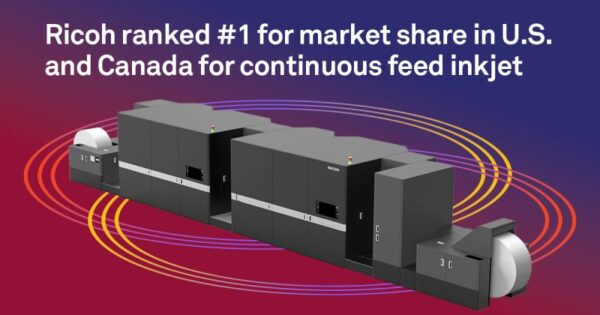Ricoh’s Steve Burger and his family are experiencing the opportunity of a lifetime since he accepted a two-year work assignment in Japan more than five years ago.
An off-handed remark about wanting to move to Japan during a night of socializing with his Japanese colleagues more than five years ago eventually turned into a unique and rewarding adventure for Steve Burger, Ricoh’s vice president, general manager, international business, Digital Business Group, Ricoh Co. Ltd., and his whole family.
That same off-handed remark made its way to the U.S.A. Senior Vice President of Marketing Hede Nonaka at Ricoh USA’s headquarters in West Caldwell, New Jersey, called Steve into his office and said to him, “I heard you want to move to Japan.”
Little did Steve realize how a slip of the lip would change his and his family’s lives forever.
Steve was no stranger to Japan, traveling there once a quarter to meet with senior engineering executives, but he never expected he’d one day work and live there. Nor did he think his family would be open to going.
“My wife has lived in New Jersey her whole life, [to her] Pennsylvania was the West Coast,” he laughed.
Gently pressured by Nonaka, Steve presented the opportunity to his wife, Jamie, and returned to work the next day to tell
Nonaka, thanks, but no thanks. Instead of accepting a “no,” Nonaka encouraged Steve and his family to visit Japan before making a final decision.
After traveling to Tokyo, meeting the expat community, visiting the local school, and seeing the sites, moving to Japan wasn’t such a far-fetched idea. Steve also realized this was an opportunity not many people in his position at Ricoh are offered. He was the first technology marketing-related person in Ricoh’s history to go to Japan.
“Most companies have these global exchange programs where you have to apply, and there’s 100 people applying,” he recalled. “Ricoh was willing to invest in me and believed I could be successful.”
After visiting Japan, and meeting some of the other American families, even Jamie felt she could survive. The plan was to work in Japan for two years, then return to the States. Steve and his family are now closing in on six years of the two-year assignment with no firm return date on the calendar.
According to Steve, it has been an amazing experience for the entire Burger family, even though the transition was challenging, particularly for his 12-yearold daughter, Amanda. His eight-yearold son, Kyle, whom Steve described as easy going, had less of an issue with the move. Amanda was one of the most popular kids in her class in the U.S., had a lot of friends, and was, as Steve described, “a social butterfly.”
“The biggest mistake I made was coming in mid-year in January because my kids got thrown into an international school,” said Steve. “It’s a pretty tight group at the school, and all the kids had their friends already. My son blended right in, but my daughter struggled the first six months.”
Things improved once a new school year began and a new group of kids came in. (The turnover in international schools
can sometimes be as high as 30% a year.) Since then, Steve has seen a dramatic change in Amanda.
“She’s become more international and global, and is a better person for it. Her friends are all multinational, from Germany, Singapore, Jakarta, wherever. She cares about the world and the planet. It’s been fun to watch her grow into a global citizen.”
Since moving to Japan, Amanda and Kyle have been enrolled in Japanese language classes and are conversant in the language. This particularly helps during those occasional times when Steve and his family socialize with colleagues and their families. While his colleagues at Ricoh are often fluent in English, their families may not always be as adept. His kids can often talk to his colleagues’ kids in Japanese, even though it’s not unusual for his colleagues to translate for their spouses and their children from time to time.
After one of these social gatherings, one of Steve’s colleagues told him, “Stevesan, I don’t talk to my family this much on the weekends.”
The family still spends the summer in the U.S., with the kids reconnecting with their friends at summer camp, although Steve still spends most of it working in Japan.
When an American goes to Japan or a Japanese citizen come to America to work, there are relocation companies that assist with the transition and handle the details such as visas and green cards. That’s the easy part. Ricoh Human Resources has created a global mobility program that supports all the logistics, financials, and the work-related tasks.
“It was great support,” said Steve. “Ricoh’s Global Mobility program made it easy to relocate.”
The challenge, he added, comes in everyday life. He recalls arriving at his new apartment in Tokyo on a Saturday, taking Sunday off, then hopping on a train to Ricoh for his first day of work on Monday morning. When he returned home that evening, he had trouble finding his apartment building.
“When I lived in New Jersey, I had zero patience,” said Steve. “I now have a lot more patience than when I left because I
have learned to accept the fact that every day can be an adventure. That’s what I love about the opportunity. Every day, no matter how comfortable I feel, there’s enough I don’t know, and things can go wrong in an instant.”
When Steve first arrived in Japan, he barely knew the language. Since then, he’s had four years of lessons and can speak somewhat conversationally, even though he readily admits his Japanese language skills are not so good. Steve
did point out that everybody in Japan appears to have some English capabilities. Even if they can’t speak the language, they tend to be able to read and write it. Because of that, Steve has found he’s often more effective communicating with many of his colleagues via email or during collaboration sessions with Ricoh’s interactive white boards.
Steve’s presence in Japan has been positive for his colleagues too. What he’s brought is a better understanding of the U.S. market to the company’s top-level engineers and executives, while also exposing the company to some divergent Western styles of thinking. He has been especially instrumental in communicating the voice of the U.S.-based dealer community directly to the development teams in Japan.
Ricoh Company, Ltd. has changed a lot too. The company has announced a new world of work with new workstyles, leveraging all the latest Ricoh cloud and communication technologies. None of the executives have a dedicated office anymore. As an example, when he needs to schedule a meeting with senior executives, typically, he’d have to go through different channels in the company to speak with people at different levels in the organization before reaching the top level. Now, if Steve sees a top executive at his or her desk, he can stop by and ask a few questions and move forward very quickly.
Still, there are cultural differences. In the U.S., Steve held an executive management position in marketing, and he would
provide direction to his own team that reported directly to him. In Japan, he described himself as more of a player/coach for the 150 people he works with in the Digital Business Center. It is less about giving specific direction, and more about discussing the individual team strategies and helping the teams achieve their goals.
He recalls walking into a room where a group of employees were crafting a security white paper for the U.S. market. He
offered to discuss what they were planning to include in the document. He casually sat down and provided them tips on
how to make it more relevant to the U.S. and the overseas markets.
“They’ve never had a senior executive sit down and walk them through what the customer wants, or even help them create the document,” revealed Steve. “It has created increased motivation for the younger folks. In a very hierarchal society, it doesn’t happen as much as it should. One thing I struggled with was that in the U.S. you managed a team. In Japan, you need to roll up your sleeves and be a player/coach. I’ve become valuable because I can explain direction and why we need to
build something, with the real voice of the channels and customers.”
His team’s function is to talk to his Ricoh colleagues in the U.S., Asia Pacific, and Europe, obtain their requirements, and coach the planning and development teams to understand and make better products for the global market.
“I’m coaching my team on what to do, and how to do it, not just barking orders at them,” he emphasized. “I travel with my developers. They talk to dealers and customers directly face to face. They understand what the business requires, and they build the solution. This motivates our engineers. They can visualize how the customer will use the solution they are building.”
In the Japanese culture, people work hard during the week. Most Ricoh employees arrive around 8:30 a.m. and don’t leave until 9 or 10 o’clock at night. When he was in the U.S., Steve would often work a typical day, and then go home to his family. He still tries to do a typical work day in Japan, but it’s not often possible because a lot of negotiations happen after hours due to the time difference””eight hours with Europe, and 13 to 14 with the U.S.
Weekends are different, too. In the U.S., work can be 24/7 because of email and cell phones, but in Japan, it’s unusual for Steve to receive work emails and calls on the weekend from his Japanese colleagues unless he contacts them first.
When the weekend arrives, the Burger family is often on the go.
“My wife treats every weekend in Japan like it’s our last,” said Steve. “I’ve seen every site, every tour, every ceremonial festival. I come into the office and say, have you gone to the Tenjin Matsuri Festival in Osaka? And they say, what is that Steve-san? Many times, I have to explain Japanese culture to my own team.”
Outside of being more conversant in Japanese before he left for Japan, he would have liked to have known more about Japanese culture and customs.
“Part of the adventure is learning new things every day,” he said. “The Japanese people are so nice and very forgiving of the cultures. Everyone is very supportive of me being here.”
In Japan, Ricoh has strong brand recognition. When Steve and his family have needed help in some of the more rural areas of Japan, all he needs to say is “Ricoh shain desu” (“I am an employee of Ricoh”), and the family gets all the support they need.
When Steve’s term in Japan does come to an end, he acknowledged he’ll miss the people, the sense of security, the history,
and the culture. He also has some words of advice for the next person who might come over to Japan in his place.
“I wish my wife and kids had a better understanding of what life would be like before they went,” he said. “I’d love to have my wife and kids talk to a future family going there. That would be key to set the expectations. We didn’t have any of that.”
Even though Steve doesn’t have a timetable for a permanent return to the U.S., it could be one more year, or two. He is not sure yet, he is in no rush and continues to enjoy the experience.
“I feel honored and grateful that Ricoh’s given me and my family this amazing opportunity,” said Steve.
Access Related Content
Visit the www.thecannatareport.com. To become a subscriber, visit www.thecannatareport.com/register or contact cjcannata@cannatareport.com directly. Bulk subscription rates are also available.



